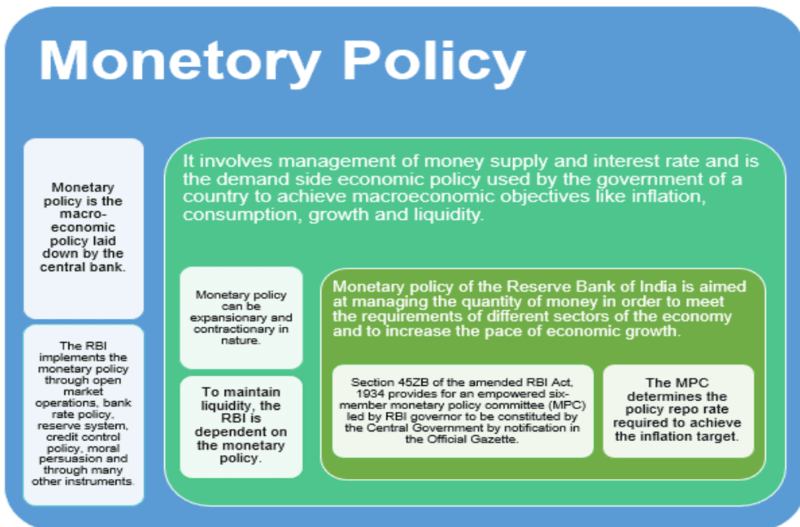News Excerpts:
The Reserve Bank of India (RBI) has introduced two crucial surveys, namely the 'Inflation Expectations Survey of Households' and the 'Consumer Confidence Survey’.
- They are aimed at gathering essential data for the upcoming bi-monthly monetary policy.
Key points:

- Inflation Expectations Survey of Households:
- The 'Inflation Expectations Survey of Households' is designed to capture subjective assessments of price movements and inflation.
- The survey will gather data based on individual consumption baskets in 19 cities, including Ahmedabad, Bengaluru, Bhopal, Bhubaneswar, Chandigarh, Chennai, Delhi, Guwahati, Hyderabad, Jaipur, Jammu, Kolkata, Lucknow, Mumbai, Nagpur, Patna, Raipur, Ranchi, and Thiruvananthapuram.
- The survey will solicit qualitative responses from households regarding anticipated price changes, both general prices and specific product groups, for the next three months as well as the one year ahead.
- Additionally, it will collect quantitative responses on current inflation rates, as well as inflation rates expected in the next three months and one year.
- The survey results will provide valuable insights for shaping monetary policy decisions.
- Consumer Confidence Survey:
- The 'Consumer Confidence Survey' will seek qualitative feedback from households, focusing on their sentiments concerning the general economic situation, employment prospects, price levels, household income, and spending patterns.
- This survey was conducted regularly in the 19 cities, including Ahmedabad, Bengaluru, Bhopal, Bhubaneswar, Chandigarh, Chennai, Delhi, Guwahati, Hyderabad, Jaipur, Jammu, Kolkata, Lucknow, Mumbai, Nagpur, Patna, Raipur, Ranchi, and Thiruvananthapuram, aims to gauge public sentiment on various economic factors.
- The findings from both surveys are anticipated to offer significant inputs to inform the RBI's monetary policy strategy.
- RBI has emphasised that the outcomes of these surveys will play a vital role in shaping future monetary policy decisions, underscoring the importance of accurate and timely data in formulating effective economic policies.
